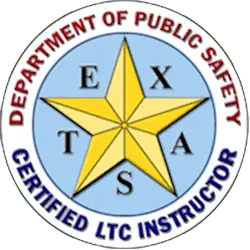If you’re a Texas resident interested in self-defense, the concept of “concealed carry” might already be on your radar. Texas is a gun-friendly state with laws that support the right to bear arms, including the option to carry a concealed weapon. Although Texas does allow permitless carry for eligible residents, getting your License to Carry (LTC) offers substantial benefits and can make a real difference in your experience and safety.
In this post, we’ll explore Texas concealed carry laws, what the LTC entails, and why having one could be a great decision for you.
Texas Concealed Carry: Understanding the Basics
As of 2021, Texas allows permitless carry (also known as “constitutional carry”) for those who meet specific age and background requirements. This means you can carry a handgun without an LTC if you’re over 21 and meet all legal requirements. However, concealed carrying without an LTC comes with limitations.
A License to Carry in Texas is essentially an advanced permit, authorizing individuals to carry a concealed firearm in a wider range of places with fewer restrictions. The LTC process involves additional steps, including background checks and firearm training, ensuring that licensees are well-prepared to carry responsibly.
Key Advantages of Getting Your LTC in Texas
While permitless carry is now available, obtaining an LTC provides additional privileges, protections, and conveniences. Here’s why getting your Texas LTC is a smart move:
1. Expanded Carrying Rights
One of the biggest perks of an LTC is the expanded access to certain areas where permitless carriers are restricted. For example:
- College Campuses: While open carry is prohibited, LTC holders can conceal-carry on Texas public university campuses (with some restrictions in certain buildings).
- Governmental Meetings: In some cases, LTC holders may have additional allowances to carry in places where permitless carry is restricted.
- Businesses with “No Firearms” Signs: Businesses with “51%” or “30.06” signs indicating restricted areas may still allow LTC holders, giving them more carrying options.
2. Reciprocity with Other States
One standout benefit of having a Texas LTC is the reciprocity it offers with other states. This means your Texas LTC is valid in states with similar concealed carry laws, allowing you to carry concealed while traveling. Without an LTC, you would lose this ability when leaving Texas, limiting your options for legal self-defense while on the road.
3. Training and Preparedness
The process of obtaining an LTC includes a mandatory training course and proficiency test. This training not only covers essential gun safety principles but also provides legal education on where and when you can carry, how to handle confrontations legally, and what to expect if you need to use your firearm. This added knowledge can be critical in helping you make confident and legally sound decisions if you ever need to defend yourself or others.
4. Legal Protections in the Event of Self-Defense
In Texas, an LTC provides legal benefits in self-defense scenarios. With a license, the legal system may look more favorably upon your case if you had to use your firearm in self-defense, as the LTC demonstrates a commitment to responsible, lawful carrying. Additionally, Texas laws are designed to protect licensed carriers who have completed the necessary training.
5. Quicker, Smoother Encounters with Law Enforcement
Interacting with law enforcement while carrying a firearm can be stressful, but having an LTC can make these interactions smoother. In Texas, LTC holders often benefit from a streamlined approach with law enforcement officers because they’re able to show proof of background checks, training, and legal knowledge. Many officers recognize the LTC as a sign of lawful, responsible carrying.
6. Potential Discounts and Benefits
Many Texas firearm instructors and gun stores offer discounts on training and gear to LTC holders, encouraging ongoing practice and responsible ownership. Certain shooting ranges and insurance programs may also offer reduced rates for LTC holders, making it more economical to stay well-practiced.
Steps to Get Your LTC in Texas
- Meet Eligibility Requirements: To qualify, you must be a Texas resident, at least 21 years old (18 for military members), and meet legal requirements related to criminal and mental health history.
- Complete the Training Course: Texas requires a 4-6 hour course covering firearm use, safety, and Texas laws. This can be done online.
- Pass the Shooting Proficiency Test: This hands-on test assesses your ability to handle a firearm responsibly.
- Submit Your Application: Apply through the Texas Department of Public Safety website, where you’ll pay a fee and undergo a background check.
The process is straightforward, and thousands of Texans go through it each year for the added security and benefits it brings.
In Summary: Is an LTC Worth It?
For anyone considering concealed carry in Texas, getting your License to Carry offers a range of benefits that extend beyond simply owning a firearm. It provides expanded rights, reciprocal carrying privileges, essential training, and added legal protections. Whether you’re new to carrying or a long-time gun owner, obtaining your LTC can be a worthwhile investment in both your personal safety and legal standing.
Remember, responsible gun ownership and adherence to Texas’s firearms laws are crucial. So, if you’re thinking about concealed carry, consider the LTC as a powerful tool to help you carry confidently, safely, and within the law.
